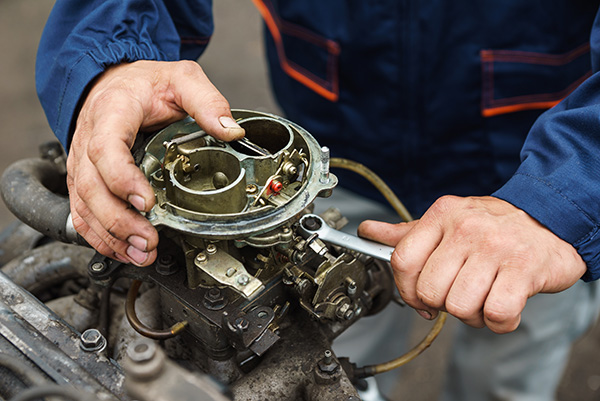
Not long ago, the carburetor was an essential part of almost every vehicle on the road. If you owned a car in the 1970s or 1980s, you probably heard the term often or even adjusted a carburetor yourself. But take a look under the hood of any modern vehicle today, and you won’t find one. So what happened?
Carburetors were once the standard for mixing fuel and air before it entered the engine’s combustion chambers. Today, that job has been handed over to more advanced technology. Let's explore why carburetors disappeared from modern vehicles and what replaced them.
What Did the Carburetor Do
The carburetor was responsible for blending fuel with air in the right ratio before delivering it to the engine. It relied on air pressure and mechanical parts to regulate this mix. When it worked well, the engine ran smoothly and responded well to the gas pedal.
But carburetors had their limitations. They required frequent adjustment, especially during seasonal temperature changes or when altitude affected air pressure. If the mixture was off, the engine would run rich (too much fuel) or lean (too much air), leading to poor fuel economy or sluggish performance.
The Shift to Electronic Fuel Injection
In the late 1980s and early 1990s, automakers began moving away from carburetors and embracing electronic fuel injection (EFI) systems. This transition happened for several reasons—efficiency, reliability, emissions control, and technological progress.
Unlike carburetors, EFI systems use sensors and an engine control unit (ECU) to precisely calculate how much fuel to inject at any given moment. This process is more accurate and adaptable than any mechanical carburetor could offer.
Fuel injectors spray fuel directly into the intake manifold or combustion chamber. The ECU constantly adjusts timing and volume based on input from sensors that monitor engine temperature, oxygen levels, throttle position, and other parameters. The result is smoother performance, better fuel economy, and lower emissions.
Emissions Standards Drove the Change
One of the biggest reasons carburetors were phased out was the tightening of emissions standards in the United States and around the world. Carburetors simply couldn’t deliver the consistent fuel-air mixture required to keep up with those regulations.
Electronic fuel injection systems offered greater control over combustion, which meant less wasted fuel and cleaner exhaust. As governments demanded lower pollution levels from cars, EFI became the obvious solution.
By the mid-1990s, nearly all new vehicles sold in the U.S. featured some form of fuel injection. It became standard practice for both gasoline and diesel engines.
Better Performance and Fuel Economy
Another reason carburetors became obsolete was their limited ability to adapt. Driving at different speeds, temperatures, or altitudes often required manual tuning or resulted in rough engine behavior. EFI systems, in contrast, adjust themselves automatically in real-time. This results in smoother starts, faster throttle response, and enhanced performance in all conditions.
Fuel economy also improved. EFI systems deliver only the fuel needed at each moment, reducing waste and helping vehicles get more miles per gallon. For many drivers, the benefits showed up quickly at the gas pump.
What About Simplicity and Repairs
Some drivers still miss the simplicity of carburetors. They could often be repaired or rebuilt at home with basic tools, and many hot rod and classic car enthusiasts continue to use and maintain them. But for the average driver, the reliability and lower maintenance demands of fuel injection outweigh the appeal of doing everything manually.
Modern vehicles may be more complex, but they also require fewer tune-ups. There’s no need to adjust jets or check choke settings. While sensors and electronics can fail, today’s vehicles offer longer service intervals and more consistent performance overall.
Are Carburetors Gone for Good
You’re unlikely to see a new vehicle with a carburetor, but that doesn’t mean they’ve vanished entirely. Classic cars, older trucks, motorcycles, lawnmowers, and some small engines still use carburetors. In those cases, simplicity and cost matter more than emissions or efficiency.
In the automotive world, however, the shift is clear. Today’s engines are built with performance, emissions, and diagnostics in mind—areas where carburetors simply can’t compete.
Trust Inmon Automotive in Merritt Island, FL for Modern Engine Care
Even though carburetors are now a part of automotive history, the need for proper fuel system care remains. Whether you’re driving a late-model vehicle with fuel injection or maintaining a classic with a carburetor, Inmon Automotive in Merritt Island is here to help.
Our technicians are well-versed in both old-school and modern systems, and can diagnose performance issues, clean injectors, or assist you in restoring your vintage ride. If you have questions about your car’s fuel delivery system or just need expert maintenance, schedule a visit today. Let’s keep your vehicle running no matter what’s under the hood.